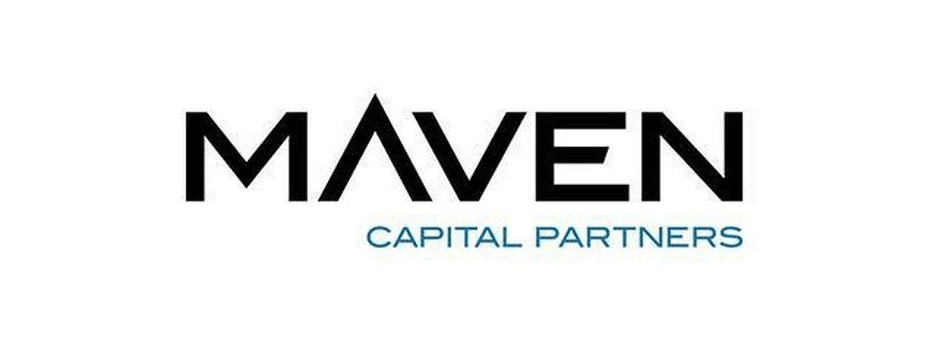Does Every Crowdfunding Platform Need To Carry Out AML And KYC Checks?
For any individual or organisation in even simply the exploratory stage of launching a crowdfunding platform, the topic of AML and KYC (Anti-Money Laundering and Know Your Customer) checks will undoubtedly have come up.
A critical component in the space of financial services, it becomes even more pertinent when you’re operating as a regulated entity. Whilst being unregulated doesn’t automatically exclude you from requiring to run AML and KYC checks (under the Money Laundering, Terrorist Financing and Transfer of Funds (Information on the Payer) Regulations 2017, certain businesses must perform AML and KYC checks even if they are not FCA-regulated), becoming a regulated firm puts AML and KYC at the front of your operations.
Venture capital firms. Real estate firms. Banks. Financial institutions. And more. They all have a requirement to play a role in combatting financial crimes such as money laundering, terrorism financing, fraud, and corruption, ultimately protecting the financial system, ensuring compliance with laws, and maintaining trust in the economy.
And this can undoubtedly include crowdfunding platforms.
Why crowdfunding AML and KYC checks are required
Understanding why crowdfunding platforms need to run AML and KYC checks ultimately comes back to asking why any firm with investors on one side investing money into companies on the other needs to run the checks.
The simple answer is it’s an opportunity to prevent a variety of financial crimes.
And as a platform that could be a place for such activities, you can have a legal obligation to do your utmost to prevent them from taking place.
Just like venture capital, private enquiry or real estate investment firms, a crowdfunding firm needs to have sufficient processes in place to ensure their investors are who they say they are and are investing with the right intentions.
And if you don’t complete such processes when required to do so - or you complete them poorly - the consequences are severe.
Looking at the UK as an example, non-compliance with the country’s Money Laundering Regulations (MLRs), as enforced by the Financial Conduct Authority (FCA), can result in considerable fines, reputational damage, and even criminal charges.
In recent years we’ve seen global financial institutions facing billions in fines for such failure - take Standard Chartered who, in 2019, was fined over £100 million by the FCA in the UK for AML failures, including processing transactions for clients in countries under sanctions.
Clearly, on a broad level, crowdfunding is generally on a smaller scale than the likes of Standard Chartered, yet the same regulatory rigor applies to ensure transparency and prevent exploitation.
How do you effectively run AML and KYC checks as a crowdfunding platform?
The AML and KYC process is designed to achieve one essential goal - to confirm, as thoroughly as possible, that the individuals investing in your opportunities are both legitimate and allowed to do so. This protects your crowdfunding platform, investors, and the broader financial ecosystem from the risks of fraud, money laundering, or other financial crimes.
Whilst the process can be technically complex, it can be broken down into five clear components:
- Collect basic details - gather key personal information from the investor, such as their full name, date of birth, address and nationality. These details form the foundation of the verification process.
- Request proof of identity - obtain a valid form of photographic ID, such as a passport or driving licence, to confirm the individual is who they claim to be.
- Verify address - ask for a recent utility bill or bank statement as proof of their current residential address.
- Cross-check against reliable databases - using dedicated tools and software, you need to check the individual (and the details you hold on them) against global sanctions lists, politically exposed person (PEP) databases, and adverse media sources to identify potential risks.
- Resolve issues as needed (and if possible) - if discrepancies or concerns arise during screening - such as an alert for a PEP or conflicting information - conduct further due diligence to assess the situation (noting that sometimes, as an example, a PEP can be flagged due to similar names, and in these scenarios you may override them. A flagged issue does not always mean an immediate failure of a check).
The alternative is a process that, on the assumption there are no issues arising that need to be investigated, is integrated within your crowdfunding platform and which quite literally takes seconds from start to finish.
An understandably highly attractive approach (and a beneficial one, as it can largely remove human error), it’s also favourable because it can seamlessly form part of your onboarding process, falling in line with any other requirement you may also have - such as investor categorisation and appropriateness tests for FCA authorised firms.
What are the exceptions for AML and KYC in the crowdfunding space?
Now if you’re operating in the crowdfunding - or wider investment - space, the default mindset should be to assume you need to carry out AML and KYC checks.
Every geographical location and regulatory location will have different requirements, but making a base assumption that as a crowdfunding platform, you will need to validate your investors are who they say they are is a safe assumption to make.
However, there are a small number of instances where AML and KYC checks are not often mandatory for a crowdfunding firm (the pertinent word being ‘mandatory’, and I delve more into that in the next section).
The most common instance of this is with donation or reward-based crowdfunding.
It may seem on the face of it that these are essentially the same as investment-based crowdfunding platforms, but there’s one key difference that can remove the need for AML/KYC checks - and that’s the absence of risk for the individual pledging or donating.
For a standard crowdfunded investment, there is an expectation that Investor A will invest a certain amount of capital into Company B, and from that there is a level of risk as their capital will do one of three things:
- Deliver a return. The company they invest into achieves its objectives, exits and provides investors with a return.
- Be lost. The company they invest into fails and all investor capital is lost.
- Nothing. The company they invest into stays afloat but never gets to a point where it either provides a return or fails and loses investor capital.
For this reason alone, investment-based crowdfunding platforms have a requirement to be a regulated entity under the Financial Conduct Authority (FCA) in the UK - and because they become a regulated entity, they subsequently have a legal obligation to carry out AML and KYC checks.
But look at this from the reward or donation-based crowdfunding perspective and there is no investor risk as there is no expectation that the individual’s capital will (or even could) provide a return. It’s given to the company solely as a donation (or potentially in exchange for a set reward of some type - a discount on products or a mention on the company website, for example).
Remove the FCA regulation - which happens in this scenario in the absence of risk - and you remove the mandatory need to complete AML and KYC checks.
However, it is important to note that whilst reward or donation based crowdfunding platforms may not be required by the FCA to complete AML and KYC checks, this doesn’t mean they have a blanket ‘pass’ as there are other bodies that may need to be noted.
For example, The Money Laundering, Terrorist Financing, and Transfer of Funds (Information on the Payer) Regulations 2017 and The Proceeds of Crime Act 2002 (POCA) could both be relevant for UK firms.
Under POCA, crowdfunding platforms - like other businesses - have a requirement to prohibit the facilitating of money laundering, a duty to report suspicious activity, and a need to prevent such crimes.
If a rewards or donation-based crowdfunding platform failed to act if it reasonably suspects funds being raised through its platform are the proceeds of crime, it risks liability for failure to prevent it or report money laundering under POCA.
Maintaining best AML and KYC practice regardless
It’s for this reason why maintaining best practice is very often the suggested option for anyone in the crowdfunding space, regardless of whether they are regulated and required to complete them or not.
But what does that look like?
It can generally be broken down into three components:
- Who is investing/pledging/donating into your projects or opportunities?
- Who are the people behind the projects or opportunities who will receive the funds?
- How will you facilitate the transfer of funds from the investors/pledgors/donators to the projects/opportunities?
Solutions and platforms exist to help with the first and second. We have a native integration with Compliance Assist at Quva, for example, that supports a robust compliance process, which includes running instantaneous checks on individuals, covering ID, PEPs, Sanctions and more.
The latter can often involve using a trusted (and often regulated) third party, with the ultimate goal of knowing the processes are in place to facilitate a legal and compliant transfer of funds. Think PayPal or Stripe, as opposed to funds being transferred to a somewhat random bank account.
The importance of crowdfunding AML and KYC checks
The AML and KYC process for the crowdfunding landscape isn’t just a regulatory requirement in many instances - it’s a cornerstone of building a credible and trustworthy crowdfunding platform.
These processes help to ensure that investors participating in your opportunities are both legitimate and authorised to do so, protecting your platform from legal, financial, and reputational risks.
Most firms using crowdfunding software will need to carry out AML and KYC checks, and if you think you need to run them, get advice on how to do so effectively.
Confirming compliance (and doing it correctly) not only safeguards your business but can also be a key differentiator, demonstrating to your investors that your platform is secure and transparent.
And conversely, if you don’t think you need to run them, get advice to confirm you don’t (and if you really don’t, then consider doing so anyway as a way to, amongst other outputs, build trust in your platform).
Getting AML and KYC processes wrong - or worse, neglecting them - can lead to significant repercussions, including fines, loss of investor trust, and potential legal action. The support is out there to help you navigate this space, and partnering with the right experts can simplify these processes, ensuring you meet regulatory standards without compromising user experience.















